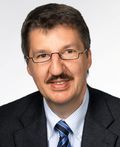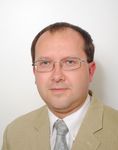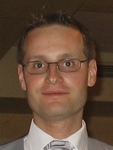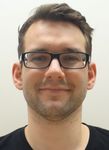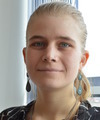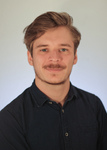Staff
is the leader of the research group Thermal Process Engineering – Computational Fluid Dynamics and supervises 14 PhD candidates at the moment. His research topics are separations engineering (thermal process engineering), combined heat and mass transfer; membrane technology (gas permeation, pervaporation, reverse osmosis, nanofiltration, ultrafiltration, electrodialysis and hybrid processes); process control, automation of complex separation processes; computational fluid dynamics (CFD) for process engineering applications, modelling of reactive and multiphase systems, transient flows, custom model development; experimental fluid dynamics for the validation of CFD and the determination of boundary conditions using Laser Doppler velocimetry (LDV), particle dynamics analyzers (PDA), particle image velocimetry (PIV) and related methods. He has been project manager for several successful projects in order to develop and demonstrate biogas upgrading processes and to separate of hydrogen from producergas of a biogas combustion by membrane technology. He is also partner of international research projects. As coordinator of an EU funded project (FP7-SME) he investigated in the reduction of operating resources and optimising cleaning processes for food and pharma industry. Mr. Harasek is a scientific area manager of the K1 Centre “K1 MET” and is involved in the design of the scientific programme in the fields of raw materials and alternative reducing agents for steel production. His mail goal in research and teachings is the technical implementation of energy efficient processes.
is chemical engineer starting his career at TU Wien with his PhD thesis on process simulation of electrolyte systems. His work is focusing on process simulation, process and heat integration as well as exergy analysis. He was involved in several national and international projects on simulation of thermal separation processes like absorption and rectification, optimization of the production of bio-ethanol and valuable by-products, balancing and integration of fermentative biohydrogen production and – recently - ABE fermentation. Furthermore he is working on the modeling of metallurgical processes as well as the simulation of complex electrolyte systems.
is chemical engineer working on the development and optimization of integrated processes in the field of renewable energy and valuable materials originating from biogeneous resources with a major focus on efficient separation technologies. He started his career at TU Wien with his MSc thesis on ab-initio quantumchemical calculation of material property data for gas solubility in liquids. Subsequently, during his PhD thesis, his theoretical skills in simulation (this time in CFD) became complemented by experimental skills during the development of a novel combustion technology for baled biomass. As a post-Doc University assistant in the research division of Thermal Process Engineering and Simulation, Martin now is responsible for research performed in separations engineering and biorefinery development. His strategic focus points in these areas lie in the design, construction, commissioning and scientific operation of complex experimental facilities, in modeling and simulation of chemical engineering processes as well as in the development of innovative, integrated and sustainable answers to contemporary societal questions. Thus, he has been involved in the majority of completed and ongoing research projects in the research division.
is a process engineer with focus on process simulation and membrane separations. He joined the research group during his bachelor thesis in 2011 at TU Wien. In 2014 he started his PhD at the Institute of Chemical, Environmental and Bioscience Engineering and is employed as project assistant. He participated in projects OptFuel and EE-Methan dealing with membrane application in power-to-gas systems as well as the EU project Waste2Fuels researching improved production routes for Butanol from ABE fermentation by pervaporation. He has gathered knowledge regarding membrane-based process design as well as model development and implementation in Aspen Plus.
is a process engineer with focus on membrane technology and process simulation and received her BSc and MSc from the University of Applied Sciences Wiener Neustadt, Austria. In 2015, she started with her PhD at the Institute of Chemical, Environmental and Bioscience Engineering, where she is employed as scientific project assistant at the research group Thermal Process Engineering – Computational Fluid Dynamics. Also in 2015, she received a grant (Exzellenzstipendium) for a research stay at the Helmholtz-Zentrum Geesthacht, Germany, where she investigated the behavior of polymeric membranes for gas permeation under harsh conditions. Since this internship, she has been working on various projects at TU Wien with focus on process development and simulation including those on biogas upgrading and membrane based separation of micro pollutants from wastewater streams.
Developing an CFD based optimization tool at TU Berlin, Benjamin Lukitsch familiarized himself with OpenFOAM as well as the wrapping of OpenFOAM in an automated python environment. He also gained experience in handling basic optimization algorithms. In 2017, he graduated at TU Wien as a chemical engineer and continued his work in the area of CFD as a scientific project assistant and PhD student at TU Wien, Institute of Chemical engineering. Within his ongoing work for the research group Thermal Process Engineering – Computational Fluid Dynamics, he further develops models and solvers for the description of transmembrane flux and species transport in the neighboring fluids.
Former staff members
- Adela Drljo
- Judith Ecker
- Amal Ahmed Elgohary
- Abdelhalim Fuqaha
- Diana Esteve Gimeno
- Markus Groß
- Saeed Gul
- David Konlechner
- Jutta Krischan
- Tino Lassmann
- Werner Liemberger
- Aleksander Makaruk
- Marilena Net
- Antonia Rom
- Muhammad Ali Samee
- Paul Schausberger
- Reinhard Schlager
- Robert Schlesinger
- Seyedmehdi Sharifian
- Maximilian Staudacher
Go to top


